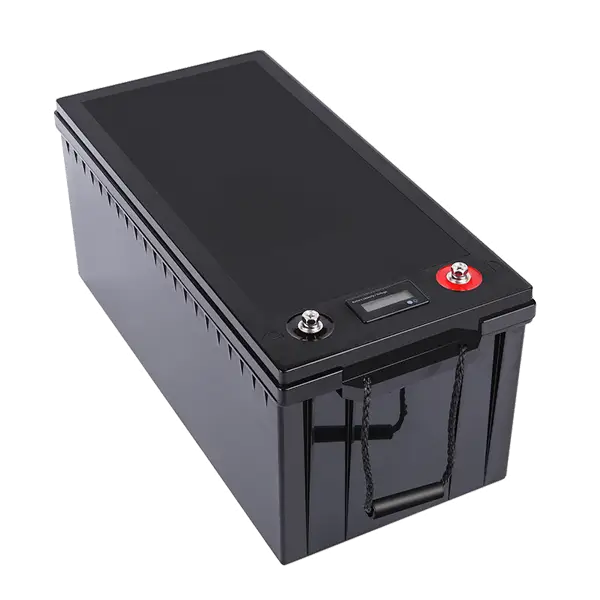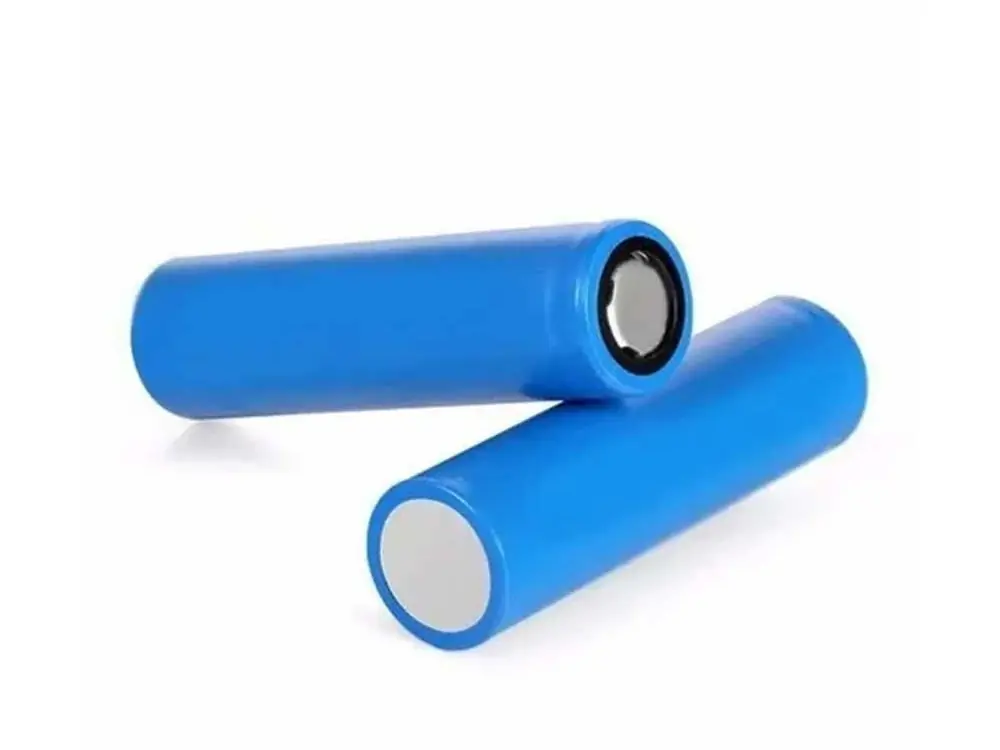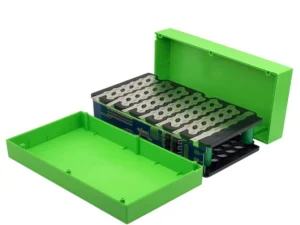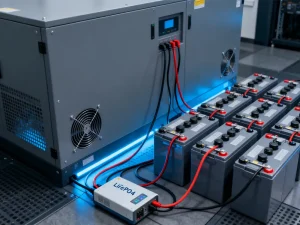Batteries are everywhere! Powering phones, cars, home systems, and more. But not all batteries are the same. You might have heard of LiFePO4 VS lithium-ion batteries and wondered what the difference is. Or maybe you’re still using a lead-acid battery and wondering if it’s time for an upgrade.
This guide focuses on LiFePO4 batteries, specifically comparing them to lithium-ion batteries and examining their differences from lead-acid batteries. No confusing jargon, just real talk.
What are LiFePO4 Batteries?
LiFePO4 stands for Lithium Iron Phosphate. It is a type of lithium battery, but it differs slightly from the lithium-ion batteries commonly found in phones and laptops. The difference lies in the chemistry inside, which makes LiFePO4 batteries safer and more durable.
So when people ask about LiFePO4 VS Li-ion, they’re really talking about different types of lithium battery chemistries, and they each have their strengths.
LiFePO4 VS Lithium Ion Batteries: Which One’s Better?
Lithium-ion batteries are everywhere, from phones and laptops to electric vehicles. But there’s a newer kid on the block: LiFePO4 (Lithium Iron Phosphate). Both fall under the lithium battery family, but they’re quite different when you look under the hood.


Here’s what usually comes up when comparing LiFePO4 VS lithium-ion batteries:
-
Safety
LiFePO4 batteries are known for being super stable and thermally safe. They’re far less likely to overheat, catch fire, or explode. Lithium-ion batteries, while powerful, can be more volatile if damaged or charged incorrectly. If safety is a priority, LiFePO4 VS Li-ion battery discussions usually point to LiFePO4 as the winner.
-
Lifespan
LiFePO4 wins big here. They typically last 2,000 to 5,000+ charge cycles, while standard lithium-ion batteries (such as NMC or NCA chemistries) typically give about 500 to 1,000 cycles before noticeable degradation. In the debate over lithium-ion battery versus LiFePO4, cycle life is a major advantage for LiFePO4.
-
Charging and Performance
Lithium-ion batteries typically offer higher energy density, meaning they store more power in the same volume. That makes them great for compact electronics and EVs.
LiFePO4 charges a bit slower, but it can handle full charges and deep discharges without much wear. Additionally, it maintains a steady voltage, which enhances performance in solar and backup systems.
Do Lifepo4 batteries need a special charger? Yes! They do. LiFePO4 batteries have different charging requirements than lead-acid or regular lithium-ion batteries. If you use a charger not designed for LiFePO4, it might not charge properly or could even damage the battery. This is super important, so don’t just grab any charger and expect it to work well.
-
Temperature Tolerance
LiFePO4 performs better in high-temperature conditions. Lithium-ion batteries can struggle with heat and require more advanced battery management to remain safe.
-
Cost
LiFePO4 was once more expensive, but prices have since dropped. Lithium-ion batteries still tend to have a higher energy-to-cost ratio. Still, because LiFePO4 lasts longer and is safer, it can be more cost-effective in the long term, especially for home energy storage or solar setups.
Li-ion VS LiFePO4 VS Lead-Acid: Quick Comparison
| Feature | LiFePO4 | Lithium Ion | Lead-Acid |
|---|---|---|---|
| Safety | Higher | Moderate | Moderate |
| Cycle Life | 2000+ cycles | 500–1000 cycles | 300–500 cycles |
| Weight | Slightly heavier | Lighter | Heavy |
| Charging Speed | Faster | Moderate | Slower |
| Maintenance | Very low | Very low | Needs regular care |
| Cost (Upfront) | Higher | Moderate | Lowest |
LiFePO4 Battery VS Lithium Ion Battery – Which One Should You Pick?
It really depends on what you need:
- For safety, longer life, and low maintenance, LiFePO4 is a great pick. It’s extremely stable, lasts for thousands of charge cycles, and performs well in applications such as solar systems, RVs, and backup power.
- For lighter weight, higher energy in a small size, and compact devices, lithium-ion is often the better choice. That’s why it’s used in phones, laptops, and electric vehicles where space and weight matter more.
So, if you’re choosing between LiFePO4 and Li-ion, consider your use case before making a decision.
How to Choose the Right Battery for You?
If you’re stuck between all these options and wondering “Which one is right for me?” Don’t worry. It all depends on what you need the battery for, how often you’ll use it, and what you care about most: safety, cost, lifespan, or performance.
Here’s a simple way to break it down:

1. For Daily Use and Long-Term Projects
Planning something long-term like a solar power system, an RV setup, or an electric vehicle? Then LiFePO4 is usually the better option. It lasts longer, charges faster, and needs less maintenance.
Yes, the upfront cost is higher. But if you are in it for the long run, you’ll probably end up saving money because you won’t have to replace it so often.
2. For Budget-Friendly and Short-Term Use
If you only need something for backup occasionally and don’t want to spend a lot right now, then a lead-acid battery might still make sense. Just be prepared to replace it more frequently and take better care of it.
3. For Small, Lightweight Devices
If weight and size matter more than lifespan or deep discharge, such as for drones, cameras, or small portable devices, then lithium-ion batteries remain a solid choice. They’re lighter and great for quick energy delivery, but they don’t last as long as LiFePO4.
4. Think About Charging Too
Don’t forget to consider how you’ll charge it. LiFePO4 batteries require specialized chargers, as do lithium-ion batteries. Ensure you’re not pairing a battery with the wrong charger, as this can cause significant issues. This is especially important when comparing LiFePO4 to lithium-ion batteries in terms of charging.
5. Check the Specs, Not Just the Price
It’s easy to focus only on price, but always look at:
- Cycle life (how many times you can charge and use it)
- Weight and size
- Charging requirements
- Safety and risk factors
- Warranty or support
Even if something looks cheaper, it might not be the best choice for how you plan to use it.
Myths & Misconceptions (That People Fell For Too)
When first learning about LiFePO4 batteries, it’s easy to believe a few things that turn out to be wrong. So here’s what you should know:
Myth 1: LiFePO4 Batteries Don’t Work in Cold Weather
Not entirely true. You can use LiFePO4 in cold climates, especially for discharging. The issue is with charging; they don’t like being charged below 0°C.
Some newer models include built-in heaters or cold-weather protection. So if you’re comparing LiFePO4 VS lead-acid, both have cold-weather limits, but LiFePO4 is more sensitive during charging.
Myth 2: They’re Too Expensive – Lithium-Ion Is Better
LiFePO4 does cost more upfront, but it lasts way longer, thousands of cycles compared to just hundreds in lithium-ion or lead-acid.
In a long-term lithium-ion VS LiFePO4 comparison, LiFePO4 wins on value over time.
Myth 3: You Can Use Any Charger
It’s a common mistake to assume any charger will work, but that can lead to problems.

Charging LiFePO4 batteries requires the right charger. Regular chargers made for lead-acid or lithium-ion batteries often don’t match the correct voltage or charging profile.
Myth 4: All Lithium Batteries Can Catch Fire
Yes, some lithium-ion batteries (like in phones) can overheat or catch fire. However, LiFePO4 is significantly more stable and safer.
If safety is a concern, especially for home or solar use, LiFePO4 wins over lithium-ion. It doesn’t heat up as easily and is one of the safest battery types out there.
Myth 5: Lighter Batteries Are Always Better
Weight matters for some things, but not always.
LiFePO4 batteries are heavier than lithium-ion batteries but still significantly lighter than lead-acid batteries. And they last longer and work more reliably. So, when comparing LiFePO4 VS lithium-ion or lead-acid VS LiFePO4, weight is just one part of the story, not the most important one.
To Wrap Up
The world of batteries can be confusing, but understanding the differences between LiFePO4 VS lithium-ion batteries can help you make better choices.
- LiFePO4 batteries are safer, longer-lasting, and require less maintenance than lead-acid batteries.
- They need special chargers made for them.
- Lithium-ion batteries are still great for small devices, but don’t last as long as LiFePO4.
Next time you are thinking about batteries, remember these basics. It’ll save you from buying the wrong one or damaging your battery.
